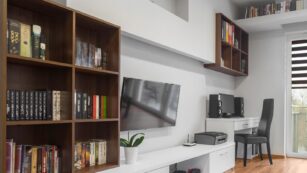When you’re about to sell a home, it’s good practice to have someone come and inspect it before you close on it. This is to make sure that there are no serious problems with the home that you weren’t aware of.
The same goes for when you’re buying a home. Again, you want to ensure that you’re not inheriting any major problems. So, what exactly will a home inspector be looking for?
Structural Damage
This can manifest itself in several ways, from cracks in walls to doors that don’t close properly. If there is any evidence of water damage, that’s an immediate red flag, as this could indicate foundational problems.
The home’s roof is also a major concern, as leaks can cause serious damage if left unchecked.
Foundation problems can threaten that investment by causing serious structural damage and lowering the value of your home. Most foundation issues are caused by water – too much water can cause soil erosion or soil expansion, while not enough water leads to soil shrinkage. Underpinning your home with quality foundation repair products can fix issues, whether it is a crawlspace, slab lifting on grade, or a basement made of poured concrete or block.
Foundation Strength
The home’s foundation is what everything else is built upon, so it must be in good condition. If there are any cracks or unevenness, this could signify bigger problems. The inspector will also check to see if the home is level, indicating foundation issues.
Windows And Doors
The home’s windows and doors can say a lot about its overall condition. For example, if there are any cracks or gaps, this could indicate that the home is not as well insulated as it should be. This can lead to higher energy bills and drafts in the winter. The inspector will also check if the doors and windows open and close properly.
Depending on who you sell your house with, you can request to have these things repaired or replaced before you decide to list the property. You can hire a service provider like St Louis Siding Company to help with any of these home repairs. If you’re not sure about something, it’s always better to err on the side of caution and get it checked out. After all, your home is likely the biggest investment you’ll ever make.
Plumbing
The plumbing system is another important part of the home and one that can often be overlooked. The inspector will check all the fixtures to make sure they are in working order and look for any signs of leaks. They will also check the home’s sewer lines to ensure there are no blockages or damage.
HVAC
The heating, ventilation, and air conditioning system is one of the most expensive parts of a home to repair, so it’s important that it is in good working condition. The inspector will check all the components of the system to make sure they are clean and functioning properly.
Electrical System
Your inspector will also check the home’s electrical system to make sure it meets current code requirements. This includes making sure there are enough outlets and that they’re correctly grounded. Additionally, they’ll test all switches and outlets to ensure they’re working properly.
Insect Infestation
This is something that is often overlooked but can be a serious problem. The inspector will check for signs of insects, such as holes in walls or floors, droppings, or nests. They will also look for any damage that has been caused by the infestation.
Other Pests
In addition to insects, there are other pests that can be a problem in a home. These include rodents, bats, and snakes. The inspector will check for signs of these animals, such as droppings or nests. They will also look for any damage that has been caused by the pests.
Insulation
Insulation is important in a home to keep it warm in the winter and cool in the summer. The inspector will check to see if there is adequate insulation in the walls, ceilings, and floors. They will also look for any gaps or holes that could allow heat or cold air to enter the home.
Water Heater
The water heater is another important part of the home that is often overlooked. The inspector will check to see if it is properly installed and functioning properly. They will also check for any signs of leaks or damage.
Fireplaces and Chimneys
If the home has a fireplace, the inspector will check to make sure it is properly vented and free of debris. They will also inspect the chimney to ensure it is free of blockages.
Safety Features
The inspector will also check to see if the home has working smoke detectors and carbon monoxide detectors. They will also check for any other safety hazards, such as loose railings or exposed wires.
Now that you know what your inspector should be looking for, you can be sure that your home is in good condition before you sell it.














